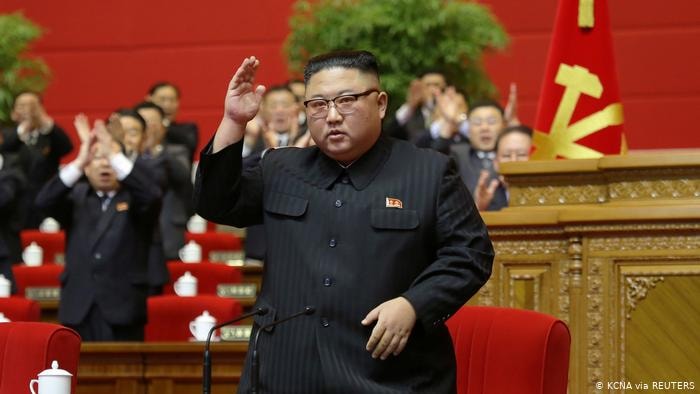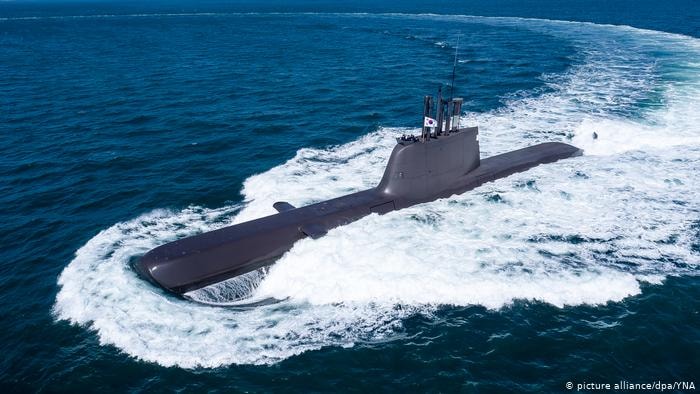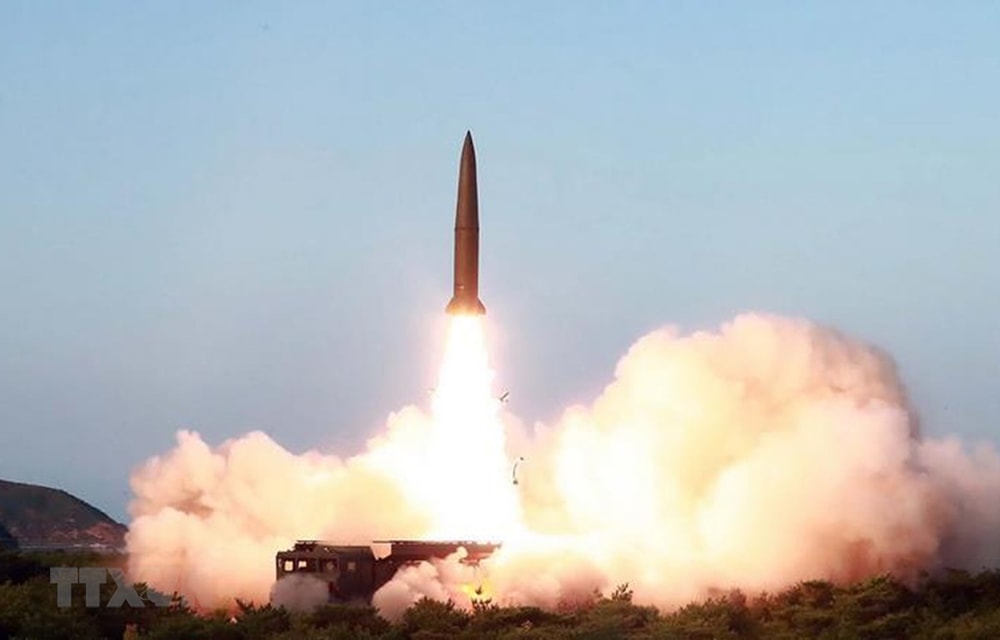Arms race returns to the Korean peninsula?
(Baonghean.vn) - This week, one of the events that has received much attention from the world public is the Congress of the Workers' Party of Korea, which takes place only once every five years; along with that, the leader in Pyongyang - Mr. Kim Jong-un announced plans for new, modern weapons systems. This development is prompting many calls for the South Korean government to strengthen its defense system to respond to all possible scenarios on the Korean peninsula.
Fear of preemptive strike
According to DW, South Korea has confirmed that the country is considering developing a nuclear-powered submarine. The "motivation" that prompted the country to consider the above intention was because North Korean leader Kim Jong-un declared at the Workers' Party Congress - the most important political event in the capital Pyongyang, that he would "promote national unification through strong military power". Not only that, Mr. Kim Jong-un also loudly mentioned the matter ofdeploy hypersonic missiles, spy satellites, intercontinental ballistic missiles with multiple warheads and nuclear-powered submarines owned by North Korea. Responding to a question posed by reporters at a press conference in Seoul on Monday, Moon Hong-sik - spokesman for the South Korean Defense Minister revealed that they have not yet made a final decision, but can promote the purchase of a nuclear-powered ship "after a comprehensive review of the technology level and defense budget".
 |
| Speaking at the Workers' Party Congress of Korea, leader Kim Jong-un repeatedly mentioned nuclear weapons. Photo: KCNA |
Analysts say the concern is that North Korea is starting an arms race with its southern neighbor, and possibly Japan, while demanding concessions from the international community on sanctions that have hampered its economic and military development since it conducted its fourth underground nuclear test in March 2016.
For example, Garren Mulloy - Professor of international relations at Daito Bunka University (Japan), who also works for an agency on defense issues analyzed: "North Korea's ambition is to gain recognition from the US that they are a "superpower" and they have decided the best way to do that is to build up their nuclear and missile arsenal, even if that means they have to neglect all other domestic issues."
The big fear in the eyes of North Korea, he added, isthe possibility of a US preemptive strike. For them, one of the options to prevent this worst-case scenario from becoming a reality is to possess nuclear-powered submarines capable of launching ballistic missiles. “These ships are very difficult to detect, especially in the deep waters of the Pacific Ocean, and they would pose a real threat to the US mainland,” the expert assessed. However, according to Mr. Mulloy, there are still many major warnings surrounding Pyongyang’s plans to develop and deploy such a submarine. Specifically, the cost involved as well as the ability to possess the technology to produce a truly “stealth” nuclear submarine that does not make any noise when operating is a huge technological leap compared to North Korea’s current position. Otherwise, if the submarine is not “quiet” enough and everyone can detect it, it clearly cannot be considered a formidable threat.
 |
| South Korea's 214-class diesel-electric submarine. Photo: dpa |
As for the South Korean military’s confirmation that it is considering building nuclear submarines to counter its northern neighbor, many people believe that, from a strategic perspective, the idea doesn’t make much sense. In other words, no one dares to confirm whether it is a realistic plan or simply a feint aimed at North Korea. Indeed, objectively speaking, South Korea currently has a close security alliance with the United States, so it doesn’t need to have submarines in its fleet, not to mention the fact that the most effective submarines in the shallow waters surrounding the Korean Peninsula are small, stealthy, hard-to-detect diesel boats.
Olive branch difficult to appear?
In his speech at the Workers' Party Congress, Kim Jong-un mentioned nuclear weapons no fewer than 36 times. However, he did not mention any moves toward denuclearization, which were proposed at the peak of Pyongyang's rapprochement with Seoul and Washington in 2018.
Analysts say the timing of North Korea's recent bellicose statements about its weapons programs is clearly related toUS presidential inaugurationJoe Biden's upcoming election. Leif-Eric Easley, Associate Professor of International Studies at Ewha University in Seoul, said: "Far from extending an olive branch to the incoming Biden administration, Pyongyang is even promising to take its nuclear weapons development to the next level."
This expert believes that leader Kim Jong-un is trying to build an image of North Korea as a responsible nuclear power. At the same time, Mr. Kim is adamant that whether or not he wants to improve bilateral relations depends on Washington, whether they want to abandon the "hostile policy" aimed at Pyongyang throughout many US presidents. If viewed from such a stance, it is understandable that North Korea refuses to fulfill its commitments and comply with UN Security Council resolutions, but instead demands an end to the sanctions and a halt to joint US-South Korea military exercises - moves they consider to be preparations for an invasion of North Korea.
 |
| A test-fire of a new type of strategic short-range guided missile at an undisclosed location in North Korea on July 25, 2019. Photo: AFP/TTXVN |
However, according to Easley, he still believes that there are many unrealistic points in Kim Jong-un's military ambitions; in other words, presenting a list of ambitious economic and military goals is one thing, but having the financial capacity to implement them is another. From that argument, this scholar "guessed" that, if in the past, in the negotiation rounds, Pyongyang proposed to give up assets that they no longer needed, such as the old nuclear facilities in Yongbyon, now "the country is promoting assets it does not own", in an effort to win concessions from the other side "front line".
What is worth mentioning now is that the threats from Mr. Kim Jong-un have sparkedSimmering concerns in South KoreaIn recent times, not only in the military but also among ordinary people. An editorial in the Korea Herald this Wednesday called on the South Korean government to “stop blindly clinging to dialogue as North Korea seeks to acquire terrifying weapons.” Not only that, the article also accused the administration of President Moon Jae-in of falling into Mr. Kim’s “negotiation trap,” arguing that North Korea had no intention of completing negotiations but was using them to develop more advanced weapons systems. The article said: “South Korea’s easygoing attitude in an attempt to please Mr. Kim only makes him act more boldly. South Korea cannot protect its security that way.” The author’s solution is to respond to North Korea’s military buildup with similar steps. And if this becomes a reality, there is no doubt that tensions are about to flare up again, and the arms race will be hotter than ever on this peninsula.
